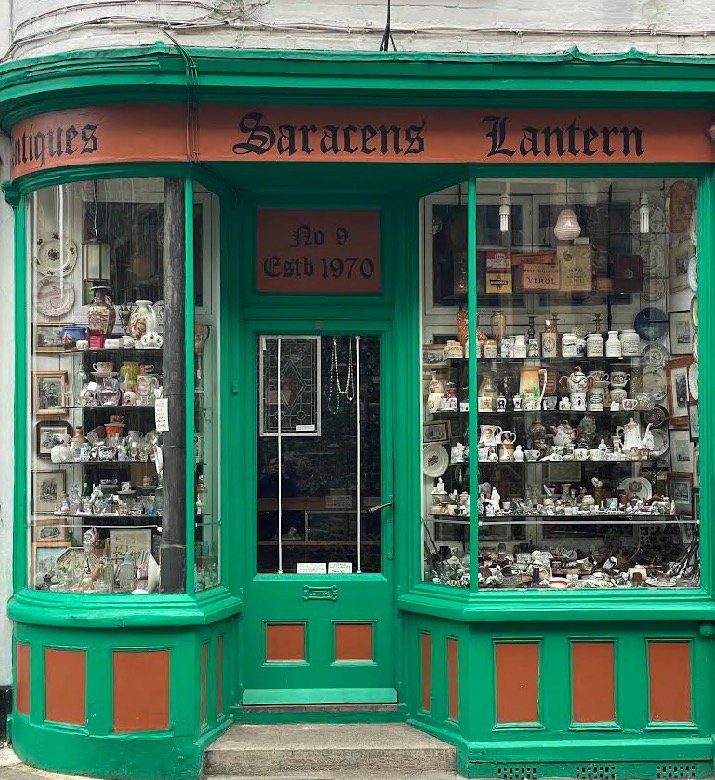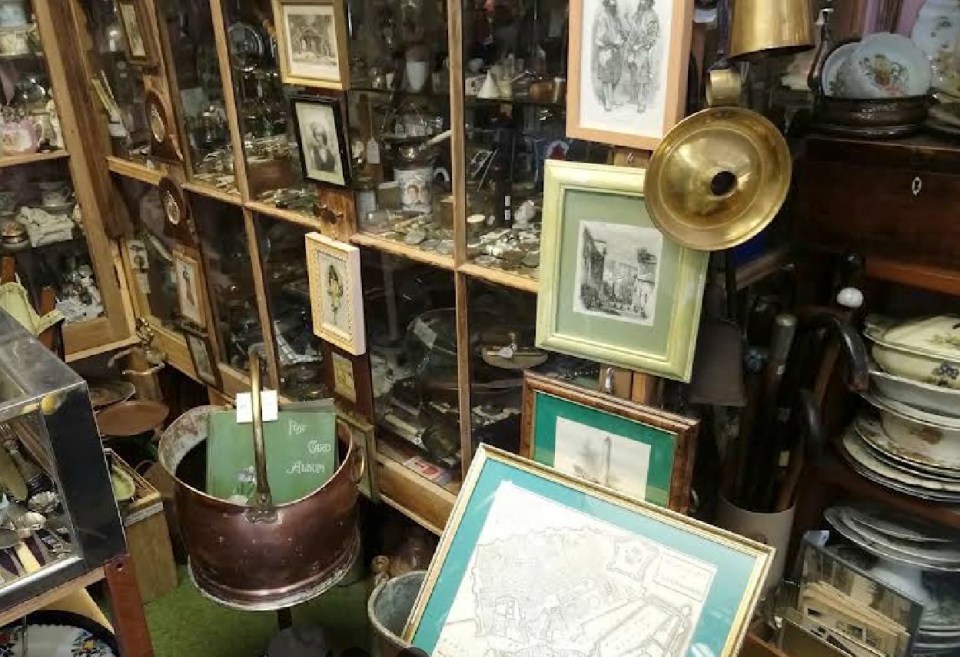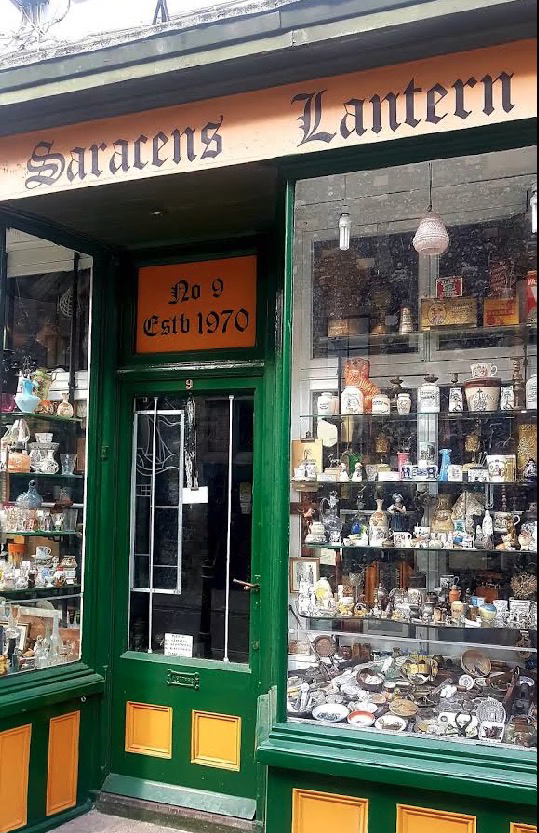A POPULAR shop which has been serving customers for more than 55 years has suddenly closed leaving regulars devastated.
Bill Christophers, 79, has announced his retirement after running his antiques shop Saracens Lanterns in Canterbury, Kent for more than half a century.
The dad-of-two, who had first trained as a teacher, revealed he’s throwing the towel in to focus on his health, after years working in the quirky store.
For many, the shop’s closure has felt like “a piece of history” disappearing, with residents flocking to social media to express their disappointment.
One local said: “I’ve always loved looking in the window of this shop.”
The local antiques shop‘s popularity stretched beyond locals too, with South African bishop Desmond Tutu once famously visiting the store.
Bill bought Saracens for £2,900 in 1970 – roughly £57,328 in today’s money – by saving money working night shifts at the local bakery.
After some negotiation, he brokered a deal with the owner who gave him a small mortgage to help him purchase the shop.
He told Kent Online: “At the time, there was a lot of cheap property going in Canterbury. There were a lot of empty shops, I was in the right place at the right time.”
After years working up to seven days a week, Bill decided in 2000 he would only open the shop on Saturdays.
He said: “I found that you get a lot of people coming in during the course of the week, they just sort of look round and say ‘Oh, lovely stock, lovely stock, who does the dusting?’ And I got thoroughly fed up.”
Despite the risky tactic, the antiques collector said his sales didn’t suffer a significant slump and he was able to get some of his life back again.
His love of antiques began at an early age, with one of his fondest memories being when his mum sent him to buy oranges with a Queen Victoria Jubilee shilling.
When his family moved into an old pub, he said it was like being thrown into a treasure trove with dozens of interesting objects he found to collect.
His passion developed when running his shop, where he often upcycled old furniture he bought for a penny at auction houses which he sold on for a hefty sum.
But over half a century later, Bill revealed he’s shutting up shop for the final time amid his disappointment over the way the city has turned out – “bit of of industrial estate, here there and everywhere.”
Going forward, he said he hopes to continue doing what he loves by selling bits and bobs as a hobby “rather than a career.”
As for all his stock, many items are on their way to local charities.
Why are retailers closing shops?
EMPTY shops have become an eyesore on many British high streets and are often symbolic of a town centre’s decline.
The Sun’s business editor Ashley Armstrong explains why so many retailers are shutting their doors.
In many cases, retailers are shutting stores because they are no longer the money-makers they once were because of the rise of online shopping.
Falling store sales and rising staff costs have made it even more expensive for shops to stay open.
The British Retail Consortium has predicted that the Treasury’s hike to employer NICs from April 2025, will cost the retail sector £2.3billion.
At the same time, the minimum wage will rise to £12.21 an hour from April, and the minimum wage for people aged 18-20 will rise to £10 an hour, an increase of £1.40.
In some cases, retailers are shutting a store and reopening a new shop at the other end of a high street to reflect how a town has changed.
The problem is that when a big shop closes, footfall falls across the local high street, which puts more shops at risk of closing.
Retail parks are increasingly popular with shoppers, who want to be able to get easy, free parking at a time when local councils have hiked parking charges in towns.
Many retailers including Next and Marks & Spencer have been shutting stores on the high street and taking bigger stores in better-performing retail parks instead.
In some cases, stores have been shut when a retailer goes bust, as in the case of Carpetright, Debenhams, Dorothy Perkins, Paperchase, Ted Baker, The Body Shop, Topshop and Wilko to name a few.
What’s increasingly common is when a chain goes bust a rival retailer or private equity firm snaps up the intellectual property rights so they can own the brand and sell it online.
They may go on to open a handful of stores if there is customer demand, but there are rarely ever as many stores or in the same places.
The Centre for Retail Research (CRR) has warned that around 17,350 retail sites are expected to shut down this year


